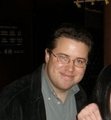Review: Earthbound by Mark R. Healy
We are in the midst of some sort of golden age for post-apocalyptic/dystopian fiction. From movies to short stories, there’s a growing appetite for hellholes and oppressive totalitarian governments. As such it is difficult for any particular novel that stands out (unless they’re making a movie out of it). On top of that I think some are starting to feel a little post-apocalyptic fatigue, which is why Earthbound by Mark R. Healy was such a surprise.
I received a copy in exchange for an honest review. As an indie author myself, there is a temptation to go easy but I learned early in my writing career that tough, objective criticism is more valuable to authors than fluff. In this case, I didn’t need to fluff my review up at all. Earthbound is a thrilling sci-fi adventure with surprising depth and an ending that makes the whole trip worth it.
Knile Oberand is a criminal living on the vast post-apocalyptic wasteland of Earth waiting for his ship to come in. In this case, the ship is a passkey, a small encoded device that gives him access to the last space elevator on the planet. From there he has a chance at a new life on one of many new colonies in the Solar System. Out of nowhere, he gets a message that a passkey is available with his name on it sent by some unknown benefactor. To get it, he must trudge through the slums of the city to the Reach, an insanely tall skyscraper with the space elevator on top. Along the way he revisits his past, including the many old friends he will leave behind. As a final catch, he must escort a young girl named Ursie to the elevator as well.
The trek from the city on the surface all the way to the top of the Reach is an action-packed thrill ride that will give you feelings of vertigo.
Knile is a criminal but has a network of friends from his long career as a thief. Like all great outlaws, he has his own sense of right and wrong. His charge, Ursie, is a street urchin (I wonder if the name was intentional) who has survived on her own on the rough streets. There is also the inspector Alec Duran, who wants to take down the infamous Knile Oberand. Finally there is the vicious drug dealer Alton Wilt, who wants Knile’s passkey for himself. It is a three-way race to the top of a three kilometer-tall super tower similar to the arcology concept.
The world-building is solid, utilizing a post-apocalyptic landscape with a space elevator inspired by Arthur C. Clarke. The story does not dwell on the apocalypse or the suffering directly, but more on the race to the elevator. As a result, there is minimal infodumping or awkward recitations of facts. The dialogue gets a little long-winded and expository at times but it is pretty rare.
The interaction between Knile and Ursie is a pretty interesting dynamic although awkward in a few instances. Some of their discussions about their dismal world were a little overdone but for the most part, it was true to character. Both live near the bottom rung of a dying world. Both are very likable and heroic in their own way.
There were some truly great scenes, and lots of action. I did start to wear down at about the three quarters mark but everything pulled together at the end.
What separates it from other indie novels in this subgenre? First, Healy does not dwell on the events of the apocalypse or wander into the details of his post-apocalyptic world. You learn what you need to know for the story and that’s it. Since this is the beginning of a series, it is likely the sequels will reveal more about what happened to Earth.
Second, the twist at the end helped give a sense of satisfaction despite it being the first in a series. Some first volumes merely introduce the universe to readers and leave too many things open ended. Earthbound does not have an open-ended ending, yet at the same time the story isn’t over.
Other than a little awkward dialogue and length, it was a great read. Hopefully Book Two comes out soon.
The post Review: Earthbound by Mark R. Healy appeared first on Jacob Foxx.




